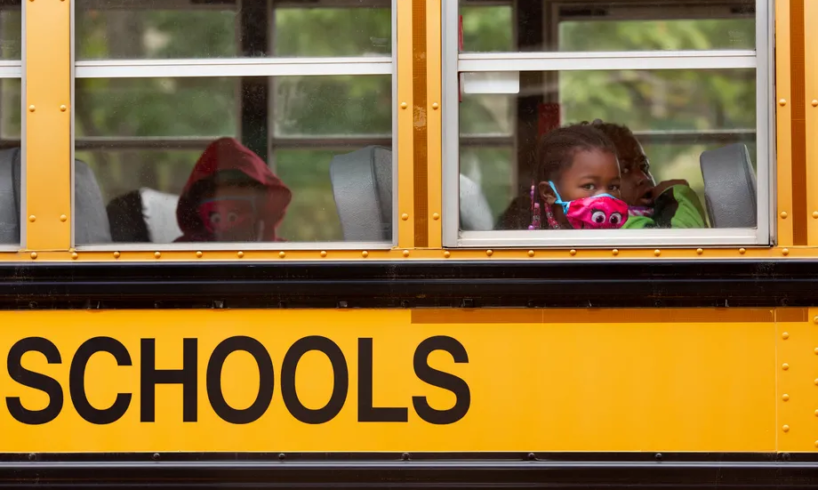
To delay middle and high school start times to give teenagers more sleep, the Denver district may cut back — potentially way back — on yellow bus service districtwide.
The most extreme scenario, which Denver Public Schools has dubbed Option C, would standardize bell times so that all secondary schools would start at 8:50 a.m. All elementary schools would start at 7:50 a.m.
But this scenario would cut service to 106 of Denver’s 206 schools. Bus drivers can’t be in two places at the same time, so standardizing start times limits how many routes they can operate.
Under Option C, each bus driver would only be able to drive two routes each morning instead of the current three. Bus service would be preserved at district-run schools where 90% or more students come from low-income families. (See the list in the document at the end of this story.)
Another scenario, Option B, would have less standardized bell times and eliminate transportation to just 20 schools, including district-run schools serving more well-off families, magnet schools, and independent charter schools that purchase bus service from the district.
A third scenario, Option A, would keep all current bus routes and similar bell times, but would have more elementary schools starting at 7:30 a.m. and secondary schools dismissing at 4:40 p.m. Families complained last year that the 7:30 start time is too early and the 4:40 p.m. dismissal time means students may be walking home in the dark.
District officials emphasized that the three scenarios are just proposals. The district will collect feedback for another month and aim to make a final decision by June. The late start for middle and high schools, which the school board approved last May, is set to begin in fall 2023.
“There are going to be really hard choices no matter where we land,” said Amber Elias, the district’s lead operational superintendent. “Making a change of this scale in a system this large is going to hurt. There are going to be some balances we’ll have to make.”
The school board’s “healthy start times” resolution calls for all middle and high schools to start at 8:20 a.m. or later. It was championed by board member Scott Baldermann based on research that shows later school start times lead to increased attendance and higher graduation rates.
That later start times could cause deep cuts in bus service was not discussed as a possibility when the board unanimously voted for the resolution. At the time, the district was grappling with another busing change: standardizing bell times so that most schools now start within three time windows — 7:30 to 7:40 a.m., 8:05 to 8:25 a.m., and 8:50 to 9:10 a.m. That change was made to increase efficiency and avoid service cuts in the face of a bus driver shortage.
The shortage is still happening, both in Denver and nationwide. Only 64% of the district’s bus driver positions are filled, leaving it short about 100 drivers, according to a district presentation. That makes moving to later start times for middle and high schools even trickier, said Dustin Kress, chief of staff for the district’s operations division.
Most Denver high school students are not eligible for yellow bus service. Instead, the district provides passes to ride public Regional Transportation District buses to and from school.
But the district must still provide yellow bus service for high school students with disabilities, recent refugees who attend the district’s “newcomer centers,” and Spanish-speaking high schoolers who are learning English at the district’s bilingual programs, Kress said.
That requires drivers and limits the district’s flexibility. Transportation for these students would continue even if the district cuts other routes.
For other students, including those in citywide magnet programs who now have bus service, Kress said the district could consider other options to help students get to school. That might include handing out more Regional Transportation District bus passes, setting up carpools, or providing schools with small buses that school staff could drive, he said.
The district is not considering closing any magnet schools as part of this proposal, Kress and Elias said. Denver has a small number of magnet programs focused on the arts, highly gifted and talented education, the Montessori method, international studies, and more.
At a meeting Wednesday to gather feedback on the scenarios, a participant asked why magnet programs were being targeted for cuts, Elias said. The answer district officials gave left some magnet school families and principals fearing their schools were on the chopping block. The district has been scrambling to assure them that was not the case.
“We know the impacts are real and the fears are real,” Elias said. “We’re trying to do this in a way that keeps the impacts and possibilities as transparent as possible.”
This article was originally posted on Later high school start times could mean less bus service in Denver